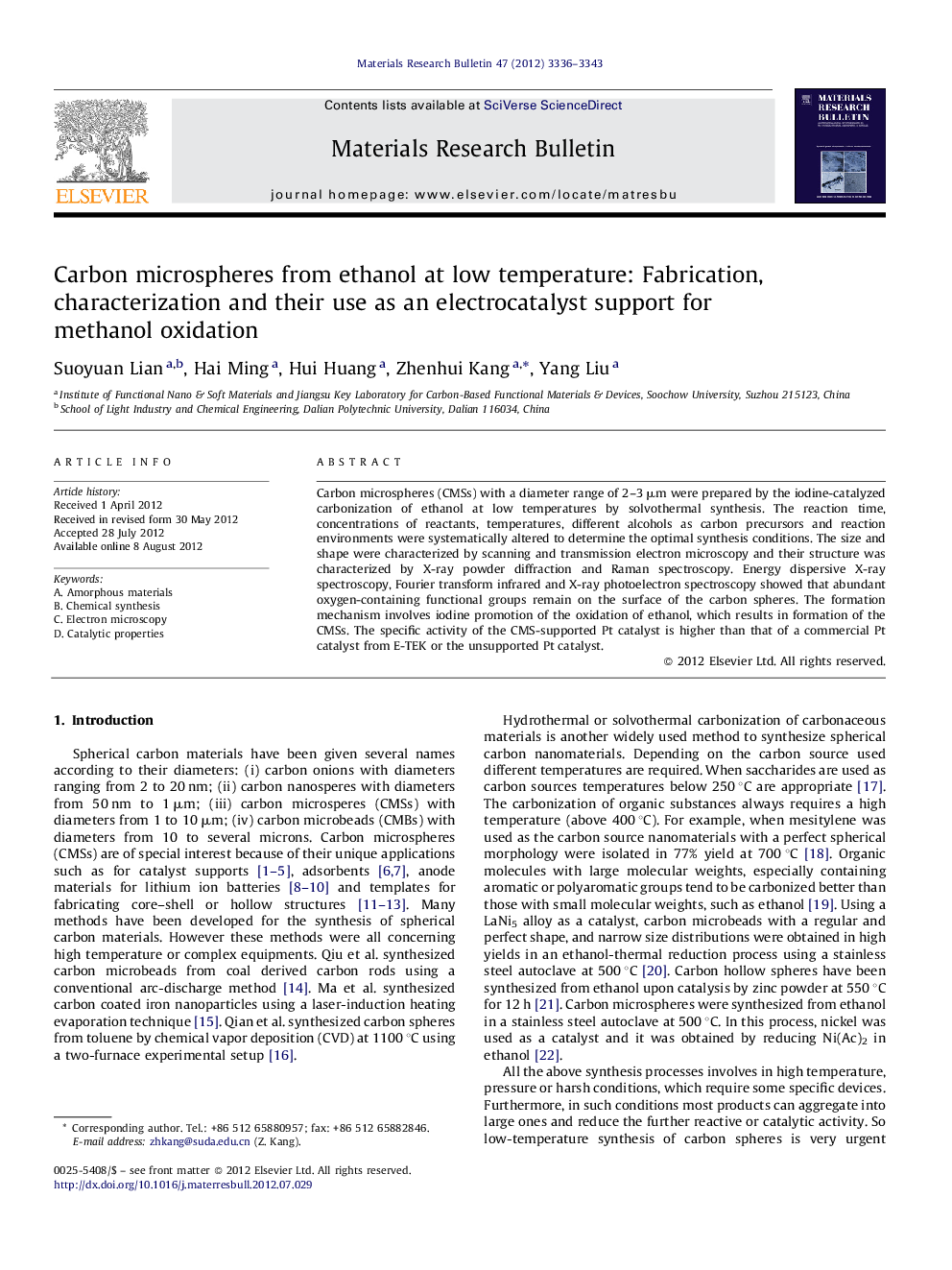| Article ID | Journal | Published Year | Pages | File Type |
|---|---|---|---|---|
| 1490106 | Materials Research Bulletin | 2012 | 8 Pages |
Carbon microspheres (CMSs) with a diameter range of 2–3 μm were prepared by the iodine-catalyzed carbonization of ethanol at low temperatures by solvothermal synthesis. The reaction time, concentrations of reactants, temperatures, different alcohols as carbon precursors and reaction environments were systematically altered to determine the optimal synthesis conditions. The size and shape were characterized by scanning and transmission electron microscopy and their structure was characterized by X-ray powder diffraction and Raman spectroscopy. Energy dispersive X-ray spectroscopy, Fourier transform infrared and X-ray photoelectron spectroscopy showed that abundant oxygen-containing functional groups remain on the surface of the carbon spheres. The formation mechanism involves iodine promotion of the oxidation of ethanol, which results in formation of the CMSs. The specific activity of the CMS-supported Pt catalyst is higher than that of a commercial Pt catalyst from E-TEK or the unsupported Pt catalyst.
Graphical abstractFigure optionsDownload full-size imageDownload as PowerPoint slideHighlights► Carbon microbeads were prepared by the carbonization of ethanol at low temperature. ► The low temperature carbonization of ethanol was catalyzed by iodine. ► Carbon microbeads can serve as ideal candidate for catalyst supports.
